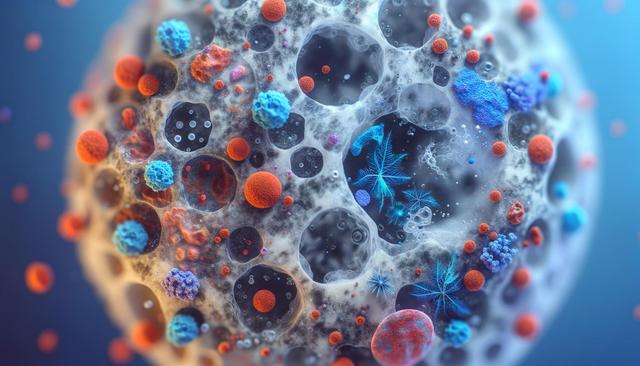What is Genital Psoriasis?
Genital psoriasis is a type of psoriasis that appears on the skin in the genital area. Although it shares many features with other forms of psoriasis, its location makes it particularly uncomfortable and often emotionally distressing. This condition is not contagious, but it does require specific care due to the sensitivity of the affected area. People with psoriasis elsewhere on their bodies may also develop symptoms in the genital region, although it can sometimes appear in isolation.
There are different types of genital psoriasis, including inverse psoriasis, which occurs in skin folds, and plaque psoriasis, which is characterized by raised, red patches covered with a silvery-white coating of dead skin cells. The symptoms can vary from person to person but often include:
- Redness and inflammation
- Itching or burning sensation
- Pain or discomfort during movement or sexual activity
- Cracks or splits in the skin
Because the genital area is more delicate than other skin regions, even mild symptoms can cause significant discomfort. It is essential to get an accurate diagnosis from a healthcare provider to differentiate genital psoriasis from other conditions such as infections or contact dermatitis.
Causes and Triggers
Like other forms of psoriasis, genital psoriasis is considered an autoimmune condition. It occurs when the immune system mistakenly attacks healthy skin cells, leading to rapid skin cell turnover and inflammation. While the exact cause remains unclear, both genetic and environmental factors play a role. If you have a family history of psoriasis, your risk may be higher.
Several triggers can worsen genital psoriasis or cause flare-ups, including:
- Stress and emotional distress
- Skin injuries or friction from clothing
- Infections, including yeast infections or bacterial infections
- Hormonal changes
- Use of certain medications, such as beta-blockers or lithium
Understanding and avoiding your specific triggers can help manage the condition more effectively. It’s also important to remember that genital psoriasis is not caused by poor hygiene or sexual activity, and it cannot be transmitted to others.
Diagnosis and Medical Treatment Options
Diagnosing genital psoriasis typically involves a physical examination by a dermatologist. In some cases, a skin biopsy may be performed to rule out other conditions. Because the genital area is sensitive, treatment must be carefully managed to avoid further irritation or complications.
Common treatment options include:
- Topical corticosteroids: These can reduce inflammation and itching but should be used cautiously to avoid thinning of the skin.
- Calcineurin inhibitors: Often recommended for sensitive areas, these creams help control inflammation without the risks associated with steroids.
- Moisturizers and emollients: Keeping the skin hydrated can alleviate discomfort and help maintain the skin barrier.
- Systemic treatments: In more severe cases, oral or injectable medications may be prescribed to manage the immune response.
It’s important to follow a treatment plan tailored to your needs and to discuss any side effects or concerns with your healthcare provider. Regular follow-ups can help adjust your treatment as needed and monitor for any complications.
Daily Care and Lifestyle Considerations
Managing genital psoriasis involves more than just medical treatment. Daily care and lifestyle adjustments can significantly influence the frequency and severity of flare-ups. Because the area is prone to moisture and friction, maintaining good skin hygiene while avoiding harsh products is key.
Some useful daily care tips include:
- Wearing soft, breathable cotton underwear
- Avoiding tight-fitting clothes that can cause friction
- Using fragrance-free, gentle cleansers
- Gently patting the area dry after washing instead of rubbing
- Applying moisturizers regularly, especially after bathing
Additionally, managing stress through techniques such as mindfulness, yoga, or therapy may help reduce flare-ups, as stress is a known trigger. A balanced diet and adequate hydration can also support overall skin health.
Sexual activity might be challenging during flare-ups. Open communication with your partner and using appropriate lubricants can help manage discomfort. If symptoms interfere with intimacy or cause emotional distress, speaking with a healthcare provider or counselor may be beneficial.
Emotional Well-Being and Support
Living with genital psoriasis can be emotionally taxing. Feelings of embarrassment, anxiety, or low self-esteem are not uncommon, especially when symptoms affect sexual health or body image. It’s important to acknowledge these feelings and seek support when needed.
Psychological support can come from various sources, including:
- Talking to a mental health professional
- Joining a support group for people with psoriasis
- Discussing concerns openly with trusted friends or partners
- Learning more about the condition to reduce fear and misunderstanding
Building a support network can help individuals feel less isolated and more empowered to manage their condition. Educating yourself and others about genital psoriasis can also help reduce stigma and promote greater understanding.
Remember, having genital psoriasis does not define your worth or limit your potential for a fulfilling life. With the right strategies and support, it is possible to manage symptoms effectively and live confidently.


